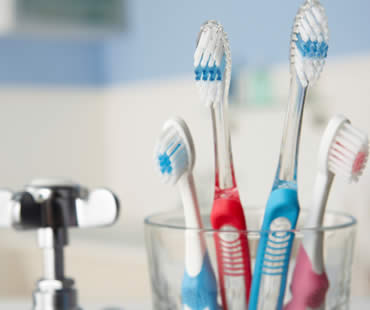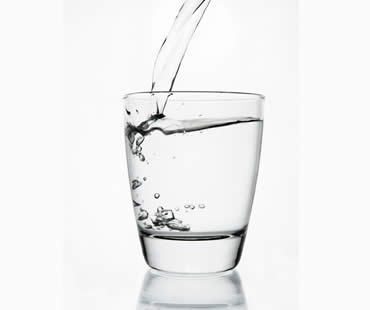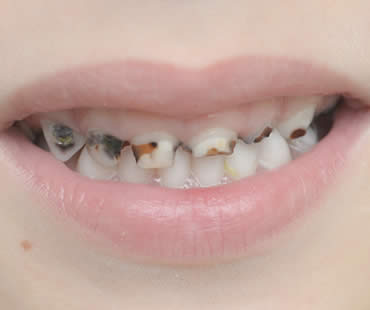
Jul 24, 2020 | Dental Information, Dental Topics 2, Blog
Chances are you would be disgusted at the thought of leaving your eating utensils on your bathroom counter exposed to germs, and never washing them but continuing to eat with them. This is essentially what you’re doing if you leave your toothbrush sitting out, and never sanitize or change it. Let’s talk about how to keep your toothbrush from being a germ-infested threat to your health.
Your toothbrush can be contaminated by bacteria, saliva, blood, and food particles with each use. Even after you rinse it with water, your toothbrush may appear clean but germs linger on the bristles. Some of the sources of bacteria on your toothbrush include:
- Your mouth, which transfers germs to your toothbrush during use.
- The environment, because bathrooms are often the most contaminated room in your house.
- The packaging, since toothbrushes aren’t sold in sterile packages they can arrive with germs already on them.
Here are some tips to guard your toothbrush from germs:
- Before and after you brush your teeth, wash your hands to get rid of germs.
- Rinse your toothbrush well with water, and then allow it to air dry.
- Store the toothbrush upright so that water can drain from it while drying.
- Consider storing your toothbrush in a dry area outside of the bathroom, away from humidity and toilet spray
- Replace your toothbrush every 3-4 months, or more often if you notice worn bristles.
- Do not share your toothbrush with anyone.
- Do not soak your toothbrush in disinfectant or mouthwash, which can lead to cross contamination
- Do not bother microwaving your toothbrush or running it in the dishwasher, because these tactics may damage your brush.
We look forward to seeing you in our Conyers dental office

Jul 27, 2018 | Dental Information, Dental Topics 2, Blog
You’ve probably seen what coffee can do to a cup. Those brown stains that you see left on your cup are also sticking to your teeth. Coffee is especially hard on your teeth due to an ingredient called tannic acid, which gets into the grooves and pits of your tooth enamel and can stain it brown. Certainly the ideal way to stop the staining is to quit drinking the java, but that’s an unrealistic solution for many people. So what else can you do to save your pearly whites?
Drink smart
First, try and reduce the amount of coffee you drink. If you drink a lot of coffee, even cutting out one cup a day can lessen the dark stains on your teeth. Another suggestion is to drink your coffee in one or two sittings instead of sipping it all day long. Also, try lowering the temperature of your coffee. The hotter the coffee is, the more easily it can stain your teeth. Just letting it cool a couple of degrees can make a difference to your teeth.
Rinse
After every cup of coffee you drink, rinse your mouth with room-temperature water. This will remove some of the staining elements before they have a chance to set in. The water also helps neutralize acids in your mouth, which will lower the bacteria in your mouth that can lead to cavities.
Use a straw
If you like iced coffee or tea, drink it with a straw so that the dark beverage doesn’t directly contact your front lower and upper teeth. Using a straw reduces your teeth’s exposure to liquids that can stain.
Whiten your teeth
Ask your dentist about professional whitening methods, as well as products you can try at home. There are even some brands of whitening toothpaste made especially for coffee drinkers.
Practice good hygiene
Brush your teeth several times a day, especially after drinking coffee. Flossing daily also helps prevent stains, and is important if you add sugar or cream to your cup of joe. See your dentist twice a year for professional cleanings, which can do a better job of removing stains and restoring your smile.
We treat patients from Conyers and the surrounding area

Jun 26, 2020 | Dental Information, Dental Topics 2, Blog
Does your mouth feel like it’s full of cotton? Or does it remind you of the Sahara Desert? Having an overly dry mouth can result from a variety of dental and medical issues. For example, one common culprit of dry mouth symptoms is related to medications. The best long-term solution is to consult your dentist or physician to determine the root cause of your dry mouth, and to get treatment to solve the problem. Sometimes all that is needed is to change to a different medication, and your dry mouth will disappear. However, here are some things you can try to temporarily relieve your dry mouth until you are able to determine what is causing it.
- Sip water often.
- Limit caffeine consumption, which can dry out your mouth even more.
- Chew sugarless gum or suck on sugarless hard candy.
- Use an over-the-counter saliva substitute, such as Biotene.
- Do not use tobacco products of any kind.
- Do not use mouthwashes containing alcohol, because it can be drying.
- Avoid over-the-counter antihistamines and decongestants, which can worsen your dryness symptoms.
- Add moisture to the air using a humidifier.
- Try to breathe through your nose instead of your mouth.
If you do experience the symptoms of dry mouth, it’s especially important to protect your oral health. Make sure you brush your teeth with toothpaste containing fluoride, and ask your dentist if prescription fluoride toothpaste would benefit you. Use a fluoride mouth rinse before bed to add an extra layer of protection for your teeth. Limit the amount of sugary foods or items high in acids, as both of these types of foods increase your risk of tooth decay. Following these tips for relieving dry mouth symptoms can make it more comfortable for you to eat, swallow, and talk.
Our dental office is located in Conyers

Mar 11, 2022 | Dental Information, Dental Topics 2, Blog
Pregnancy brings many kinds of excitement and joy to a mother’s life, but gum problems aren’t one of them. Pregnancy gingivitis not only causes gum trouble, it can also lead to higher risks for preterm labor and problems with the newborn baby. If you are pregnant and notice swelling or inflammation of your gums, you might have pregnancy gingivitis. It results from plaque buildup that irritates your gums, and can harbor bacteria that gets into your body. The bacteria can travel to your uterus and affect your pregnancy and unborn child. How can you avoid pregnancy gingivitis?
Oral hygiene
Brush and floss your teeth properly. Try to brush after all meals and snacks, especially those high in sugars or starches. See your dentist for frequent cleanings, aiming for two to three times during your pregnancy. This will remove more plaque from your teeth that you can at home, serving to lower your risk for plaque buildup.
Education
Consult your dentist before, during, and after your pregnancy. You will learn how to best care for your mouth, and what to watch for in case a problem does arise.
Nutrition
Maintaining a healthy diet during pregnancy will not only benefit your overall health and that of the baby, but will also limit your sugar intake which promotes plaque formation.
Dental care
Try to have dental procedures performed before you become pregnant. Some emergency procedures are safe during pregnancy, but it is best to have treatment done before pregnancy.
Bacteria control
Avoid sharing food and utensils so that you don’t transfer bacteria from person to person. Your goal is to limit the amount of bacteria in your mouth as much as possible.
Xylitol gum
Chewing sugarless gum promotes saliva, which help equalize the acids in your mouth and fight plaque buildup. The ingredient xylitol has been shown to help prevent bacteria from being able to stick on your teeth, therefore fighting tooth decay.
Schedule your appointment at our Conyers dental office

Nov 19, 2021 | Dental Information, Dental Topics 2, Blog
Once you’re an adult, you don’t have to worry about cavities anymore. Right? Wrong! It’s true that you should have mastered oral hygiene techniques, but there are different factors that can contribute to cavities that weren’t a big issue during childhood. What are some of the things that put you at risk for cavities once you’ve reached adulthood, and what can you do about them?
Diet
Often your diet is worse as an adult without even realizing it, and what you eat and drink directly affects your teeth and gums. Sugar is the biggest offender and all types of sugar counts, not just the obvious candy or sodas. Limit your consumption of juices, milk, crackers, sweetened coffee, fruits, and vitamin or energy drinks.
Grazing
Many people tend to “graze” on foods and drinks all day long. If you snack frequently, you’re giving bacteria a constant supply of sugars to mix with and damage your mouth. Even though it’s tempting to sip on coffee or soda all morning, it’s better to drink it in one sitting. Also consider using a straw to avoid your teeth completely.
Receding gums
If your gums pull away from your teeth, your tooth roots can be exposed to plaque. Older patients with gingivitis, or gum disease, are more likely to form cavities. If the roots of your teeth are uncovered, you are more susceptible to plaque buildup and tooth decay.
Previous fillings
Fillings you received earlier in life can contribute to adult cavities. The filling may weaken with time, allowing bacteria into any cracks. Your dentist will check existing fillings for wear and replace them if needed.
Medical conditions
People with lower saliva flow due to various illnesses are at higher risk of cavities. Cancer patients who have undergone chemotherapy or radiation are at more risk, as are smokers. People with limited manual dexterity may be unable to clean their teeth sufficiently.
Ways to decrease your risk
Brush with a fluoride toothpaste after meals, floss daily, and rinse with a fluoride mouthwash. See your dentist twice a year, and also inquire about fluoride treatments.
Our dental office is located in Conyers

Apr 16, 2021 | Dental Topics 2, Dentures, Blog
With an estimated 49 million adults in the United States wearing dentures, there are lots of lessons learned about wearing them. Virtually everyone will say that it took a little adjustment time before they were comfortable and confident with their new teeth. It can help to know what to expect with wearing dentures at first.
Your dentures may feel very strange the first day you get them. They can seem too big for your mouth, and as though your lips are out of place. These strange sensations will disappear with time. You may also notice more saliva than usual in your mouth. This is a natural response of your mouth as it grows accustomed to the appliance.
A liquid diet is recommended by many dentists for the first couple of days after getting dentures. Then you may begin eating soft foods, like cooked vegetables, eggs, and fish. Take small bites and chew slowly. Avoid biting into foods with your front teeth.
Mouth soreness from your dentures should go away after a few days. If it lasts longer than a week, call your dentist to ask if you should be seen. You may experience minor mouth sores for the first couple of weeks that you wear dentures. This is normal as you give your mouth time to adjust. If the sores are severe, call your dentist.
Dentists recommend that you remove your dentures for a minimum of eight hours each day to give your gums a rest. Most patients do this at night while sleeping. Your dentist will provide instructions about how to care for your dentures and where to store them when not wearing them. Be sure to follow the instructions for care to ensure that your dentures last as long as possible.
If you need a dentist in Conyers contact us today






